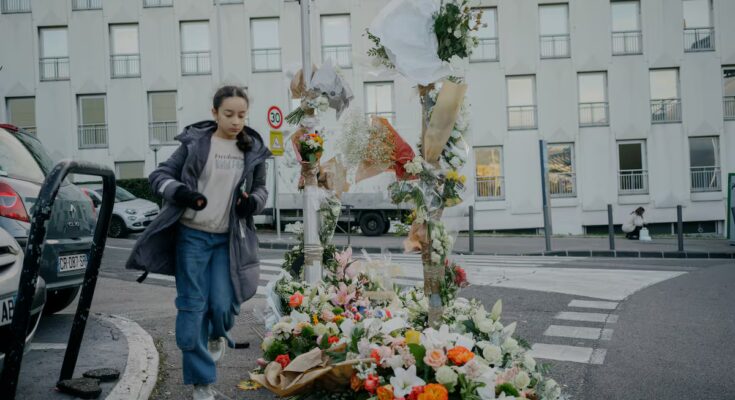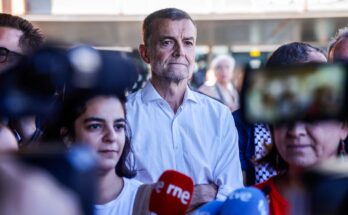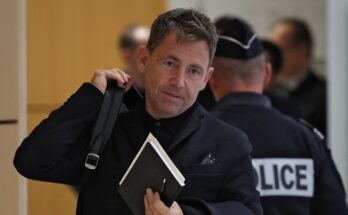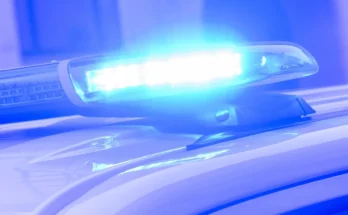Marseille, France’s second city, but for years the undisputed capital of drug trafficking and organized crime, has this week returned to being the country’s main concern. The Minister of the Interior, Laurent Nuñez, and the Minister of Justice, Gérald Darmanin, went to the French city this Thursday, a week after the murder of Mehdi Kessaci, brother of a young politician and anti-drug activist. An intimidating murder that represents a turning point and shows the power accumulated by these organizations, already capable of challenging the State. “What happened in Marseille is a crime aimed at instilling fear, a crime that targets the Republic and the State. For this reason, from January 1st we will use a device similar to the one we use against terrorism”, announced Nuñez.
France has long been aware of the seriousness of the issue. A new anti-drug law was passed in April 2025 and will come into force on January 1st. Inspired by Italian laws implemented during the time of Judge Giovanni Falcone, the law provides for the establishment of a special prosecutor’s office for these crimes, maximum security prisons for the isolation of this type of inmate and a significant tightening of sentences. Nuñez, in a small room full of journalists from the Bouches-du-Rhône police prefecture, which he himself directed years ago, described a shocking situation.
The Interior Minister also promised that he will visit once a month to ensure that the new measures are properly implemented. The head of government, Sébastien Lecornu, also announced that a debate on the topic would take place in the National Assembly.
Drug trafficking is already a deep-rooted problem in France. Cities like Grenoble, Nîmes, Béziers or Toulouse coexist with completely gangrenous suburbs due to this phenomenon. In the first six months of 2025, the authorities seized 37.5 tons of cocaine, 45% more than in the same period of 2024, a record figure, as well as the number of deaths; only inside In 2024, 367 murders or attempted murders were recorded related to this issue.
In France, around 200,000 people live from drug trafficking, which generates an estimated annual turnover of around 5.5 billion euros and supplies cocaine to 1.1 million users, according to 2023 data from the French Observatory on Drugs and Addiction Trends (OFDT). For this reason, last Wednesday, Macron raised the bar in his analysis, focusing on the “bourgeois of the city center who consume and finance it”.
Mehdi Kessaci’s story is extraordinary because it has nothing to do with drug trafficking nor was she an accidental victim of score-settling. The boy, 20 years old, was the brother of Amine Kessaci, an environmentalist and anti-drug activist who had recently entered politics. Amine, founder of the Conscience association, had been escorted by the police since last August. Police learned that criminal organizations, probably the DZ mafia, the hegemonic gang that controls much of the drug trafficking in southern France, had planned to assassinate him. Given the difficulty that the objective posed due to police protection, they decided to kill their brother.
A murder, the police believe, intended to silence activists. To impose the silence. And they partially succeeded. “His death shows the failure of our state and Europe to guarantee the protection of its citizens. Amine, in addition to being an activist in the associative fabric, was a politician, someone with a lot of media attention. And that is why many of us from now on will not want to appear with our name. It’s over”, says an activist, who requests anonymity in her statements for the first time.
Police investigations and Marseille’s criminal logic point to the DZ mafia (DZ refers to the word Algeria in Arabic and Berber) as the organization behind the murder. A horizontal organization that grew after destroying the Yoda clan, the rival gang, and which today has control of drug trafficking. “It is a broad phenomenon. Many drug traffickers who are in prison, in the national territory or abroad operate under this name. It is advertising, a brand to bring together actions, partly in Marseille, but also in other areas of the region or in bordering areas. We are now investigating their link with foreign organisations”, the head of the Marseille judicial police, Philippe Frizon, explained to EL PAÍS a few months ago.
The investigations, second The Parisianthey are now heading towards one of their leaders, detained since last Tuesday in a maximum security prison in Villefranche-sur-Saône. Amina O., known as Mamina OR Jaliscoa reference to Mexican cartels due to the level of extreme violence they use. Police believe he continued to plot murders from prison and had planned to kill Amine Kessaci last summer (hence the police escort). This inmate is accused of a triple murder that occurred at the end of 2020. The target at the time was Amine Kessaci’s older brother, Brahim, who was involved in drug trafficking. His body and that of an acquaintance were riddled with bullets in a vehicle found burnt out near Marseille. The mutilated body of a third victim was also found in the trunk of another car.
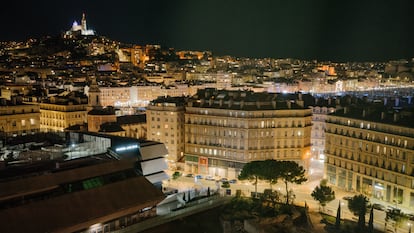
Mamine will be tried for those murders in 2026. Amine Kessaci is called as a witness at his trial. The activist was involved in that investigation and it is suspected that the hostility is also limited to personal matters.
Arrests have increased and the murder rate has more than halved compared to 2023. Also because the fight between the DZ mafia and Yoda, the rival clan, ended with the victory of the former. The Minister of Justice welcomed this Thursday the fact that 27 of the 30 people who currently lead the DZ mafia are in prison. The problem is that from there they continue to operate normally and commit murders, as has already happened on previous occasions – a year ago a 14 year old boy was burned alive in a rubbish bin – and as everything indicates what happened in the Kessaci case.
